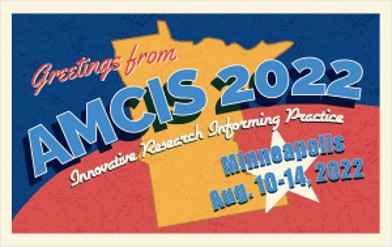SIG ODIS - Artificial Intelligence and Semantic Technologies for Intelligent Systems
Loading...
Paper Type
ERF
Paper Number
1605
Description
Artificial intelligence (AI) is being developed and adopted by many organizations throughout the world. As the potential of AI is being leveraged, many opportunities are being realized and continue to emerge. However, potential issues need to be addressed (Wang and Siau, 2019), such as ethical and legal concerns (Siau and Wang, 2020), making an AI governance framework paramount (Wang and Siau, 2018; Chen et al., 2022). To address this need, we propose an integrated AI governance framework based on an analysis of existing AI frameworks from different regions of the world (i.e., United States, European Commission, Singapore, and Hong Kong). More specifically, we systematically analyzed these frameworks, juxtaposed the frameworks to identify similarities and differences, which allowed us to identify the core components of AI governance, and proposed an integrated framework for AI governance that adheres to the characteristics of analytic theory (Gregor, 2006). The proposed AI governance framework encompasses both Strategic as well as Tactical and Operational components. There is an overarching theme that crosses the Strategic, Tactical, and Operational components that we termed Stakeholder Communication, Interaction, and Engagement. The integrated framework can be utilized by practitioners as guidelines for their AI endeavors and it can also serve as a foundation to guide future AI governance research. Moving forward, we plan to conduct case studies on AI governance frameworks in organizations and study their impacts on AI success. Future research also includes extending our proposed AI governance framework and fine-tuning it to fit unique organizational characteristics or specific sectors of industry. REFERENCES Chen, J., Eschenbrenner, B., Nah, F., Siau, K., and Qian, Y. 2022. “Diffusion of AI Governance,” Proceedings of the Seventeenth Midwest Association for Information Systems Conference, Omaha, Nebraska, May 16-17. Gregor, S. 2006. “The Nature of Theory in Information Systems,” MIS Quarterly (30:3), pp. 611-642. Siau, K., and Wang, W. 2020. “Artificial Intelligence (AI) Ethics: Ethics of AI and Ethical AI,” Journal of Database Management (31:2), pp. 74-87. Wang, W., and Siau, K. 2019. “Artificial Intelligence, Machine Learning, Automation, Robotics, Future of Work, and Future of Humanity – A Review and Research Agenda,” Journal of Database Management, (30:1), pp. 61-79. Wang, W., and Siau, K. 2018. “Artificial Intelligence: A Study on Governance, Policies, and Regulations,” Thirteenth Annual Midwest Association for Information Systems Conference, St. Louis, Missouri, May 17-18.
Recommended Citation
Eschenbrenner, Brenda L.; Nah, Fiona; Siau, Keng Leng; Chen, Langtao; and Qian, Yuzhou, "Towards An Integrated Framework for Artificial Intelligence Governance" (2022). AMCIS 2022 Proceedings. 19.
https://aisel.aisnet.org/amcis2022/sig_odis/sig_odis/19
Towards An Integrated Framework for Artificial Intelligence Governance
Artificial intelligence (AI) is being developed and adopted by many organizations throughout the world. As the potential of AI is being leveraged, many opportunities are being realized and continue to emerge. However, potential issues need to be addressed (Wang and Siau, 2019), such as ethical and legal concerns (Siau and Wang, 2020), making an AI governance framework paramount (Wang and Siau, 2018; Chen et al., 2022). To address this need, we propose an integrated AI governance framework based on an analysis of existing AI frameworks from different regions of the world (i.e., United States, European Commission, Singapore, and Hong Kong). More specifically, we systematically analyzed these frameworks, juxtaposed the frameworks to identify similarities and differences, which allowed us to identify the core components of AI governance, and proposed an integrated framework for AI governance that adheres to the characteristics of analytic theory (Gregor, 2006). The proposed AI governance framework encompasses both Strategic as well as Tactical and Operational components. There is an overarching theme that crosses the Strategic, Tactical, and Operational components that we termed Stakeholder Communication, Interaction, and Engagement. The integrated framework can be utilized by practitioners as guidelines for their AI endeavors and it can also serve as a foundation to guide future AI governance research. Moving forward, we plan to conduct case studies on AI governance frameworks in organizations and study their impacts on AI success. Future research also includes extending our proposed AI governance framework and fine-tuning it to fit unique organizational characteristics or specific sectors of industry. REFERENCES Chen, J., Eschenbrenner, B., Nah, F., Siau, K., and Qian, Y. 2022. “Diffusion of AI Governance,” Proceedings of the Seventeenth Midwest Association for Information Systems Conference, Omaha, Nebraska, May 16-17. Gregor, S. 2006. “The Nature of Theory in Information Systems,” MIS Quarterly (30:3), pp. 611-642. Siau, K., and Wang, W. 2020. “Artificial Intelligence (AI) Ethics: Ethics of AI and Ethical AI,” Journal of Database Management (31:2), pp. 74-87. Wang, W., and Siau, K. 2019. “Artificial Intelligence, Machine Learning, Automation, Robotics, Future of Work, and Future of Humanity – A Review and Research Agenda,” Journal of Database Management, (30:1), pp. 61-79. Wang, W., and Siau, K. 2018. “Artificial Intelligence: A Study on Governance, Policies, and Regulations,” Thirteenth Annual Midwest Association for Information Systems Conference, St. Louis, Missouri, May 17-18.
When commenting on articles, please be friendly, welcoming, respectful and abide by the AIS eLibrary Discussion Thread Code of Conduct posted here.



Comments
SIG ODIS